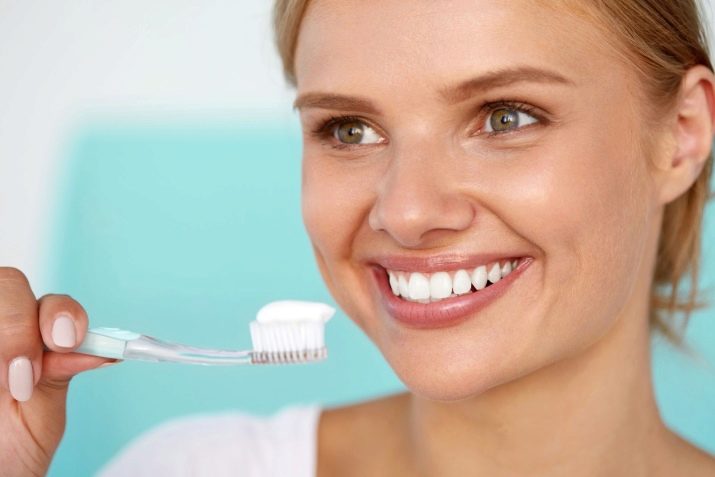When should you brush your teeth - before breakfast or after?
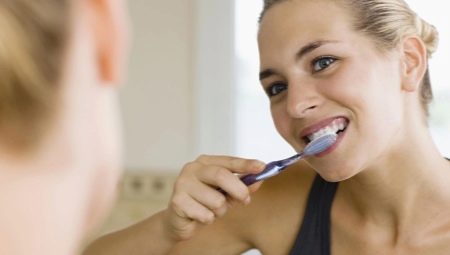
Oral hygiene is a mandatory daily procedure that allows you to maintain not only the health of your teeth, but also to have a beneficial effect on the state of the body, especially the gastrointestinal tract. Despite the seeming banality of the actions carried out, not everything is as simple as it might seem at first glance. Not everyone knows exactly how to properly brush your teeth in the morning. The question arises - do it before or after breakfast?
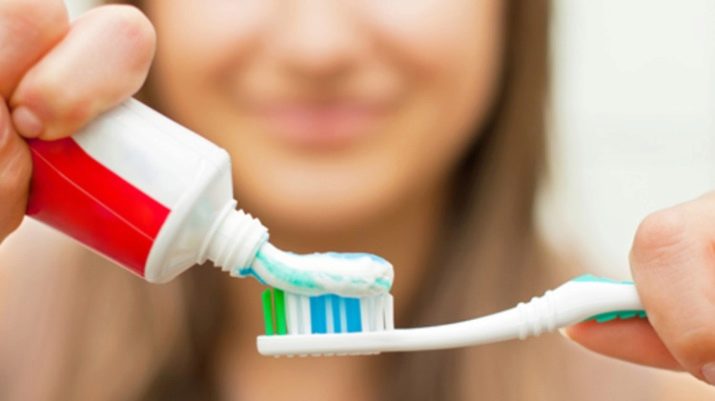
Features of brushing your teeth before meals
Most people are used to brushing their teeth immediately after having breakfast. This is done, most likely, out of habit, because this is how their parents taught. This manipulation had to achieve the following effects:
- freshen your breath, eliminating the smell of the food that has been eaten;
- remove food particles that may remain on the surface of the teeth or get stuck between them.
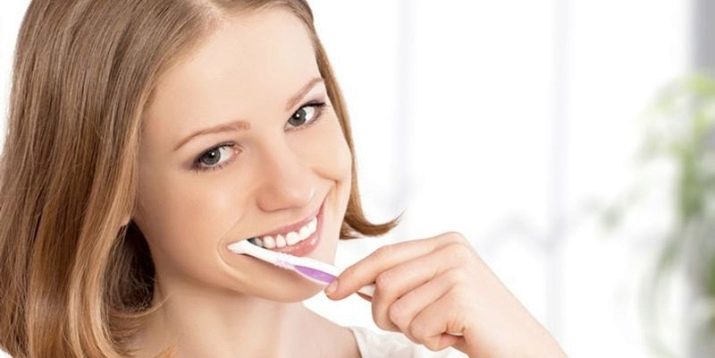
But no one analyzes why you really need to clean your mouth in the morning. After all, not everything is so banal and does not come down solely to removing plaque from food.
This fact is confirmed by numerous studies, including those carried out by the US Academy of Dentistry. So, one of the leading doctors of the research group, Howard Gamble, points out that only a small number of people really understand what cleaning is needed for.
This action should be performed immediately after the person has awakened. By doing this regularly, you can achieve certain effects.
- First, remove plaque from all bacteria that have formed during sleep.
- Prevent food particles from sticking to the formed film, which further thickens the plaque.
- If pathogenic flora is eliminated before eating begins, bacteria and other microorganisms will not enter the stomach. This eliminates the likelihood of deterioration of the digestive system and a negative impact on it.
- If a person brushes his teeth in the morning after he has eaten, thereby he only worsens the condition of the tooth enamel and negatively affects the digestive system.
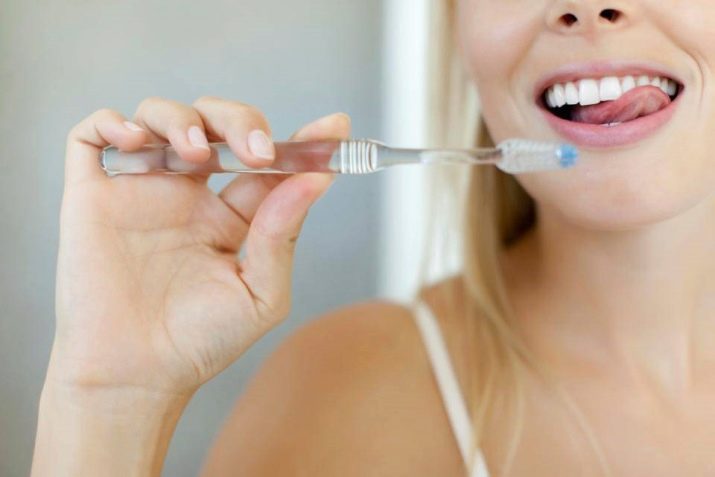
Dr. Gamble highlights the negative aspects of post-meal manipulation.
- Together with food, all bacteria that have accumulated during several hours of sleep, not only on the teeth, but also on the mucous membrane of the mouth, including the tongue, enter the stomach.
- After eating, it is not recommended to brush your teeth for 1 hour, since the surface of the enamel is exposed to acid, which is contained in saliva and is actively released due to ingestion of food. The enamel becomes softer in its structure and is subject to any mechanical stress. If a person at this moment begins to rub the surface of the teeth with a brush, he removes not only food particles, but also destroys the enamel layer. Cracks begin to appear in it, or it simply becomes thinner. The result is that the pathogenic flora gets the opportunity to penetrate the inside of the tooth, directly into the dentin. This is how the process of caries formation begins with further development into pulpitis or similar problems.
It is better to brush your teeth before eating in the morning, says a doctor at the British clinic Teeth for Life.
Phil Stemmer points out that the teeth must be coated with fluorine, so that thanks to this chemical element, they are hardened along the surface layer. This is facilitated by cleaning with special pastes. If this manipulation is done before starting to eat, the surface will be covered with fluorine, due to which it will become more durable and less exposed to acid. Eating in this case does not have any negative consequences for the teeth.
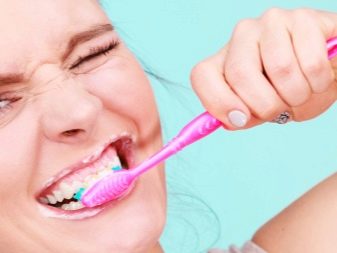

Is cleaning after breakfast important?
Doctors cite a scientific evidence base, confirmed by numerous experiments on a group of subjects. But many people ignore even such compelling reasons. This happens mainly not only due to habit, but to a greater extent due to the fact that everyone strives for a visually attractive appearance and fresh breath. After all, you really want to flash a snow-white smile and not irritate your interlocutor with bad breath.
That is why most people around the world prefer to clean their mouth and teeth after they have already had breakfast. The immediate benefit overshadows prudence and leads to negative results in the future. Indeed, in this way the surface layer of the enamel becomes thinner, and such a negative effect occurs every day.
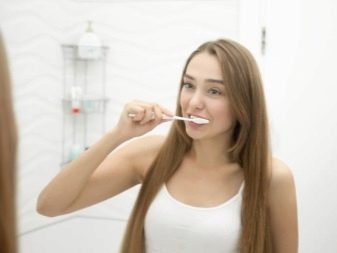
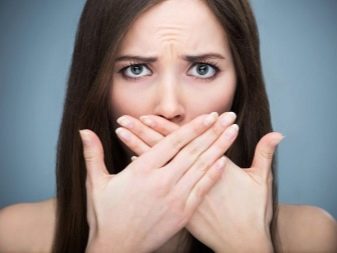
The result is not only the possible formation of carious cavities, but also a deterioration in the color of the tooth enamel. It may turn more yellow or take on a grayish tint.
This happens for a number of reasons.
- Under the influence of food that enters the oral cavity during breakfast, a large release of acid occurs. It negatively affects the enamel, softening it.
- Then the person begins to brush his teeth and even more mechanically negatively affects the enamel. It becomes thinner, damage and chips may appear on it.
- It is restored only after a few hours. If during this period a person begins to consume tea or coffee, then the particles of the coloring matter begin to penetrate directly into the enamel. As a result, it turns from snow-white to yellowish or grayish.

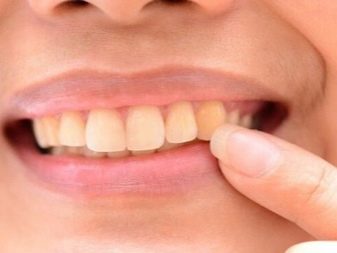
To avoid this, you must follow all the recommendations for cleaning the oral cavity and teeth. In this case, doctors advise to perform some manipulations.
- Waking up in the morning, immediately brush your teeth, without waiting for the moment when you need to eat.
- It is advisable that at least 30 minutes pass before breakfast.
- After eating, you will need to wait at least 30 minutes in order for the acid secreted with saliva to be neutralized.
- After that, you can rinse your mouth and lightly brush your teeth, if necessary. It is advisable to do this not as intensely as the first time. Indeed, in this case, it will be enough to remove only food particles that could adhere directly to the surface of the teeth or accumulate between them.
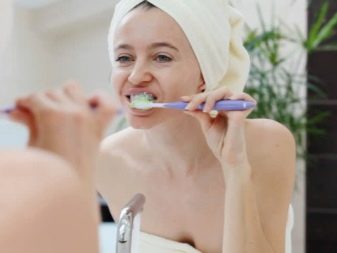

Finding a compromise
Many are accustomed to having breakfast first and then brushing their teeth. A compromise should be found in order to comply with all hygiene requirements and at the same time not negatively affect the condition of the enamel. It is necessary to take into account the recommendations of dentists.
- In the morning after waking up, a person should brush his teeth. This should be done as carefully as possible in order to remove all accumulated bacteria. Remember to brush not only over the surface of the tooth, but also over the inside of the cheek and over the tongue.
- Then wait about 20-30 minutes for the fluoride film to form.
- Have breakfast.
- Then look in the mirror at the state of your smile. Be sure to rinse your mouth vigorously several times with clean water.
- Use dental floss to prevent food debris from accumulating in the space between your teeth. Do this not only for the front teeth, but also for the chewing teeth. Such manipulation manages to achieve an outwardly attractive appearance of a smile. This removes all food debris on which colonies of pathogenic microflora can develop.
- If you cannot remove food accumulations, you can use a toothbrush that has been pre-moistened under running water. In this case, you do not need to use toothpaste or powder. Sometimes just a little mechanical action is enough to remove small particles.
- To create an environment that prevents the development of bacteria and microbes in the oral cavity, special mouth rinses are used. Today they are presented on the market in a wide range, so everyone can choose the right composition for themselves, based on existing individual problems.
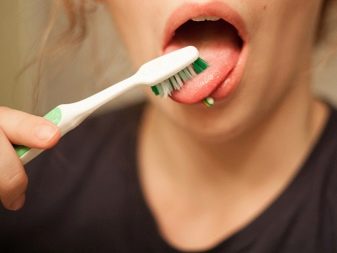
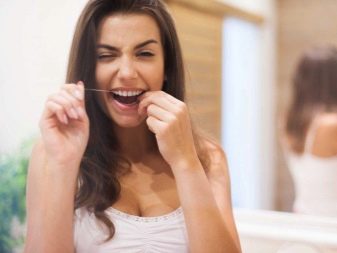
The phasing of this manipulation is important. We need to explain this to our children so that they do the right thing in the future and keep their teeth healthy for as long as possible. It is important that the correct toothpastes are also involved in daily cleansing procedures. It is better to choose gel-like ones that contain a minimum amount of coarse particles that can damage tooth enamel.
For children, you need to choose exclusively children's products, since they are balanced in composition. And one more very important point is the use of dental floss, which helps to get rid of food debris accumulated between the teeth as efficiently as possible.
All these moments, in combination with the correctly chosen moment of brushing in relation to food intake, are the key to maintaining the health of teeth and oral cavity for many years.
